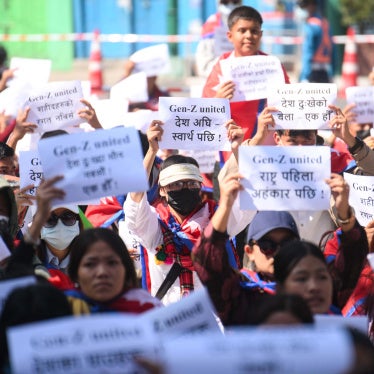WASHINGTON - Will Burma's military rulers mark the new millennium by returning the country to civilian government and adopting a ''pro-people stance,'' as recommended by the World Bank and the United Nations? Much will depend on the actions of Japan, historically Burma's largest bilateral aid donor.
A breakthrough will also require new flexibility by the Burmese government - and by Western governments.
Japan's prime minister, Keizo Obuchi, has clearly signaled Tokyo's interest in trying to rekindle democracy and respect for human rights. He broke a 15-year taboo on high-level contacts with the Burmese regime when he met General Than Shwe in Manila in November.
That was followed by a ''private'' visit to Rangoon by former Prime Minister Ryutato Hashimoto. He reinforced the message that resumption of large-scale aid, suspended after the bloody military crackdown on anti-government demonstrations in 1988, could occur in exchange for ''visible'' signs of political and economic change.
Perhaps the generals were paying attention. The ruling State Peace and Development Council delivered on a promise to Mr. Hashimoto. Late last month it began reopening universities that had been closed for three years. The gesture fell far short of what was needed, but kept Japan's diplomatic initiative alive.
The real test is yet to come for both the regime and the opposition National League for Democracy led by the Nobel Peace laureate Daw Aung San Suu Kyi. They must find a way to talk to each other.
Japan could help bridge the gap if it could convince the regime to cooperate fully with a joint effort by the United Nations and the World Bank. Tokyo can credibly use the carrot of new bilateral loans, as well as the possibility of renewed international lending. But Japan needs to be more explicit about the kinds of changes it expects.
There is an urgent need to develop a road map.
The elements of a reform program have been laid out. In the fall, the UN General Assembly adopted a tough resolution urging the government to end persecution of the league, open a ''substantive political dialogue'' with the opposition and cease ''widespread and systematic use'' of forced labor, especially in ethnic minority areas. The UN secretary-general's envoy went to Burma in October, along with a World Bank official, but talks with the government were inconclusive.
As reported by the International Herald Tribune, the World Bank's latest report on Burma recommends crucial economic reforms, coupled with political change, to reverse the country's slide into poverty and misery. The regime has invited the bank to send a mission to Rangoon for discussions, and Daw Aung San Suu Kyi has been consulted by the bank on the report's findings.
But talks between Burma's leaders and officials of the United Nations or the bank will go nowhere unless Rangoon is ready to embark on a reform path. Lifting restrictions on free expression and assembly, and releasing political prisoners, would be obvious first steps as confidence-building measures. For meaningful dialogue between the government and the opposition, there must be a climate of goodwill on both sides.
Concrete action by Burma could trigger a response by others in addition to Japan. For example, if Burma took effective action to end the use of forced labor, and this could be independently verified, the European Union could reinstate trade preferences for Burma's agricultural and industrial exports, suspended in 1997. The International Labor Organization could reverse its de facto expulsion of Burma last year.
The Clinton administration could consider lifting some U.S. sanctions if all harassment and jailing of league members ended (although providing direct aid to the government would not be an option). In general, it may be useful for the United States to continue playing the role of ''bad cop'' to Japan's ''good cop.'' Yet Washington, too, must be flexible. An incremental approach to sanctions is likely to be more effective.
Burma might not be ready to shed its international pariah status. But an end to repression there would be a fitting way to start the new century, with the long-suffering people of Burma as the greatest beneficiaries.
Mike Jendrzejczyk is Washington director of Human Rights Watch's Asia Division.







